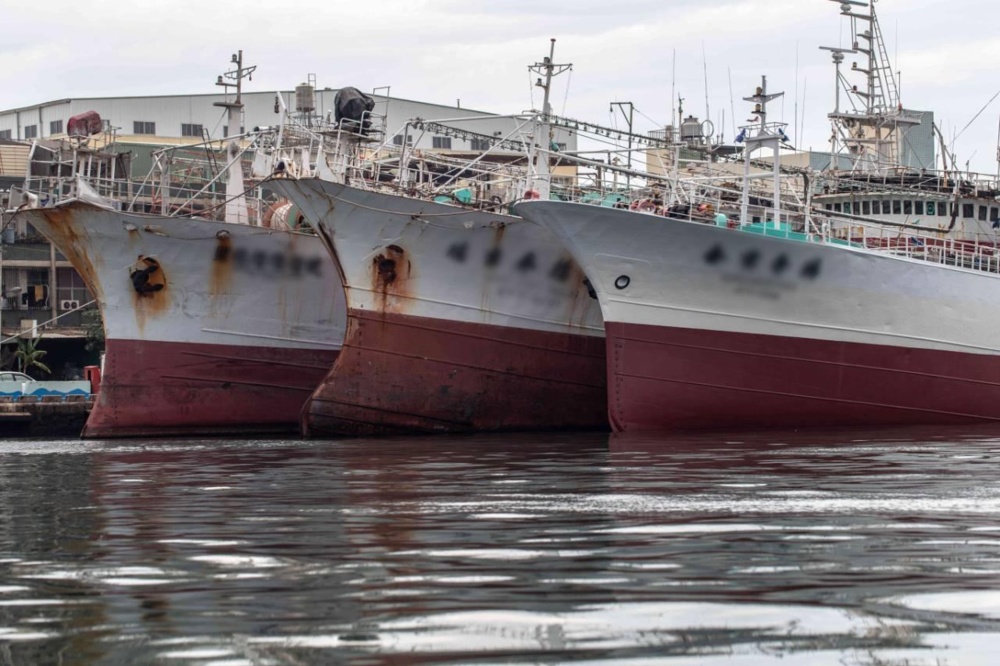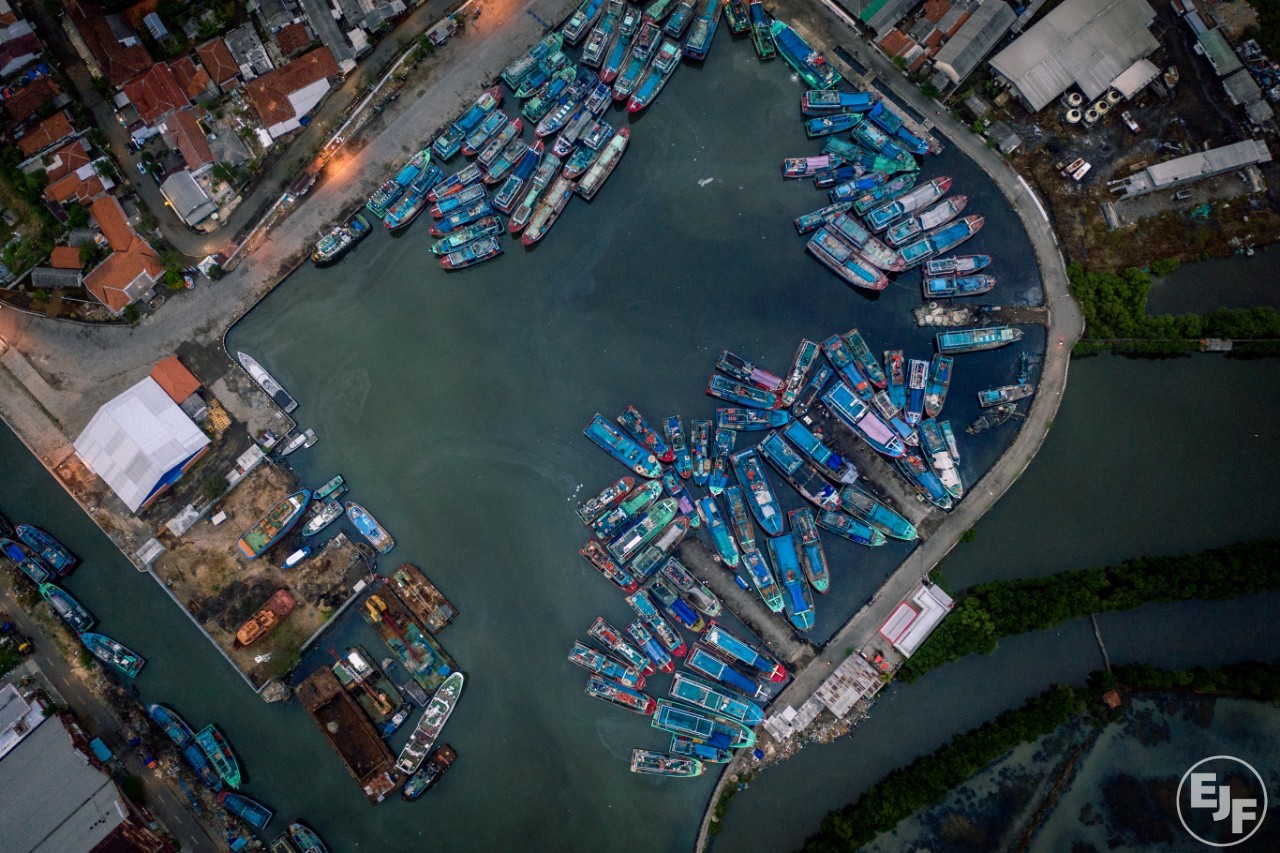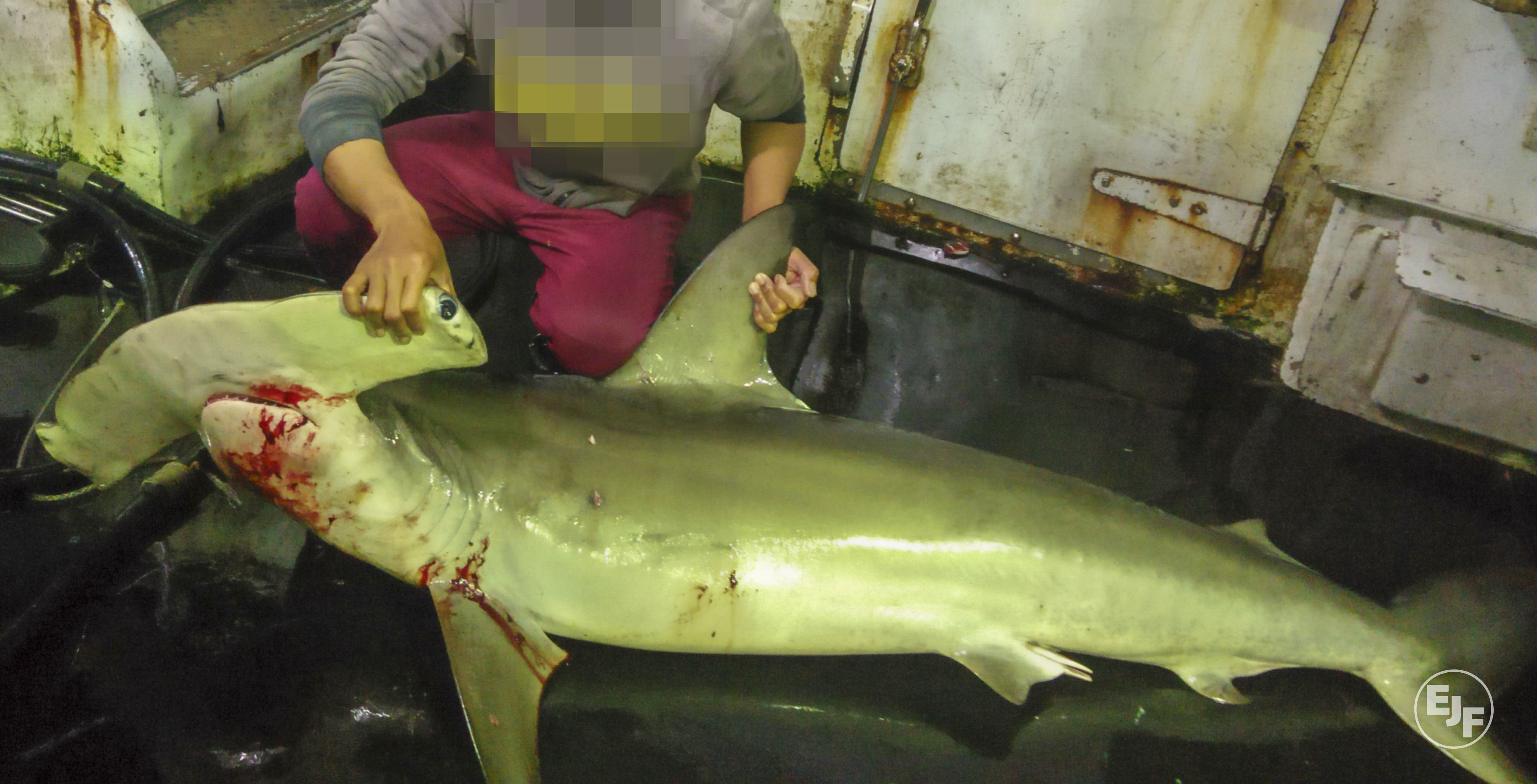
Widespread abuse and illegal fishing as Taiwan’s fleet remains out of control
Violent abuse of migrant workers and flagrant illegal fishing are systemic problems across Taiwan’s distant water fishing fleet, a survey conducted by EJF of crew from 62 vessels has found. Crew from 24% of the vessels reported physical abuse and 92% reported having their wages withheld. Sharks were finned and bodies discarded on half of the vessels. EJF and five other NGOs are calling for urgent reforms to protect fishers and the environment.
Between August 2018 and November 2019, EJF interviewed 71 former Indonesian fishers who had worked on 62 Taiwanese vessels. Workers from nearly a quarter (24%) of the vessels reported violent physical abuse, mostly being kicked and beaten by the captain or senior crew. One man, Supri from Indonesia, was locked in a freezer by the captain while he was still wet from the shower.
“It was so cold inside. He did it on purpose. I shouted ‘Captain! Captain!’ Begging him to open [the door]. I kicked at it, but still he kept it locked. I was afraid, afraid of death. If I die, who will take care of my kid and my wife?”
On the same trip Supri was electrocuted with a stun gun by a fellow crew member under orders from the captain. The tool is used to kill fish, and the shocks left Supri weak and in pain.
The individual stories are damning, but the systemic nature of the issues informs a series of reforms that NGOs say are urgently required, including the introduction of cameras on vessels. Despite recent encouraging statements from Taiwan’s government promising to adopt key international standards, vessels currently operate with limited oversight. Over three quarters of overseas ports used by Taiwan’s fishing fleet have no Taiwanese inspectors.
92% of the crew interviewed had had their wages withheld, creating conditions that can lead to debt bondage. 82% worked excessive overtime, with many fishers reporting that they had to work up to 20 hours per day with very little time to rest.
The abuse of the crew was matched by flagrant disregard for ocean wildlife and the law.
Protected species of dolphins were harpooned as they rode ships’ bow waves, hauled aboard and used as bait to catch sharks. These practices were reported by workers from eight of the vessels. Crew from half of the vessels reported illegally finning sharks and discarding the bodies, and on seven of the boats, crew reported catching and killing false killer whales.
EJF’s findings follow a report released by Greenpeace East Asia in March 2020 that documented “suspected forced labour and environmental destruction” on Taiwanese vessels.
The 2020 Trafficking in Persons report released by the US State Department last month also raised serious concerns, saying “Migrant fishermen have reported senior crewmembers employ such coercive tactics as threats of physical violence, beatings, withholding of food and water, retention of identity documents, wage deductions, and non-contractual compulsory sharing of vessel operational costs to retain their labor.” The report also found that “Insufficient staffing and inspection protocols continued to impede efforts to combat forced labor on Taiwan-flagged and -owned fishing vessels in the highly vulnerable Distant Water Fleet.” Though these findings did not result in Taiwan being downgraded in the report’s rating system, they point to the urgent need for reform.
EJF’s investigation reveals that human rights abuse and illegal fishing are still widespread in Taiwan’s distant water fleet. The exploitation of migrant crew and destructive, illegal fishing practices take place amidst rapidly declining fish populations. This race to the bottom risks the future of our oceans.
Taiwan has taken important legal steps to protect workers and ban shark finning and the killing of cetaceans. However, these laws are meaningless if they are not enforced. Vessels currently operate far at sea, with little or no prospect of being inspected and no reliable mechanisms to verify their catch. This must be urgently addressed. To combat this it Taiwan must adopt basic measures to build transparency in its fishing operations – adopting and implementing EJF’s Transparency Charter - and ensuring that its own laws are enforced.
Notes for editors
Watch the film of Supri’s story
Read the full briefing
Detailed findings:
The table below sets out the disturbing prevalence of alleged human rights abuses, and IUU fishing reported on by migrant workers.
Unlawful Practice | Sample Vessel % (n=62) |
IUU Fishing | |
Shark finning | 50% |
Intentional capture and killing of dolphins | 13% |
Decapitation of false killer whales | 11% |
Human Rights Violations | |
Withholding of wages | 92% |
Excessive overtime | 82% |
Physical abuse | 24% |
Verbal abuse | 34% |
Salary under minimum wage ($450 USD) | 18% |
Recommendations to Taiwan:
The Taiwanese fishing fleet is one of the world’s largest distant water fishing fleets. It is made up of over 1,140 vessels flying the Taiwanese flag and at least 220 additional foreign-flagged vessels that are owned or funded by Taiwanese nationals. Despite some encouraging legal reforms, recent investigations by EJF and Greenpeace have found that the fleet is still afflicted by widespread human rights abuses and incidences of IUU fishing are still widely reported remain pervasive in the fleet.
Taiwan’s fishing industry operates a two-tiered system to recruit migrant fishers – one system governed by the Fisheries Agency sees workers hired overseas and largely travelling straight to a distant water fishing vessel without visiting Taiwan. The second system governed by the Ministry of Labor sees workers brought to Taiwan, largely to work in coastal fishing vessels.
The Human Rights for Migrant Fishers Coalition of Taiwan coalition is arguing for a single system governed by the Ministry of Labor. The Coalition is made up of EJF, Greenpeace, Serve the People Association, the Taiwan Association for Human Rights, the Taiwan International Workers' Association and the Yilan Migrant Fishermen Union.
The Coalition recommends that the Taiwanese government:
- Increases inspector coverage to include all authorised overseas ports (or reduce the number of such ports if more practical in some instances) and provide inspectors with extensive training in identifying human trafficking and other human rights abuses;
- Increases resources and training programmes for relevant authorities tasked with conducting portside vessel inspections and increase the inspection rate to not only high risk vessels but also vessels related to them.
- Implements electronic monitoring systems for Taiwanese fishing vessels including remote sensors, cameras and the ability for crew to communicate with the outside world to raise any concerns;
- Implements transparency measures, including the publication of a single license list of all vessels in Chinese and English, sanctions and information on beneficial ownership;
- Abolishes the overseas recruitment system and require all migrant workers on fishing vessels to be recruited through Taiwan under direct supervision of the Ministry of Labor.
- Allocates sufficient resources to rapidly bring Taiwanese law in line with the ILO C188. This should include conducting comprehensive, victim-centred interviews with a sample of crewmembers during such inspections to identify potential human rights abuses; and
- The Executive Yuan should ensure and oversee proactive cross-departmental investigation into human right abuses and IUU fishing cases on Taiwanese vessels. This should also include input from civil society.
SIGN UP FOR OUR EMAILS AND STAY UP TO DATE WITH EJF

